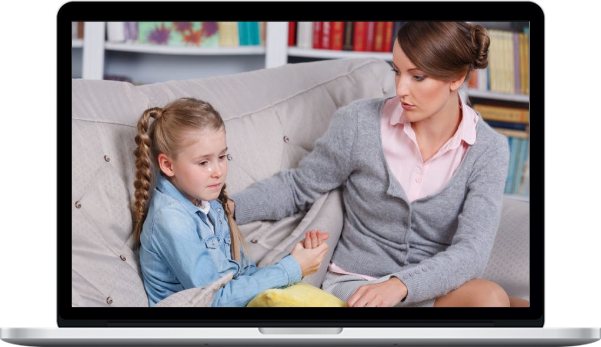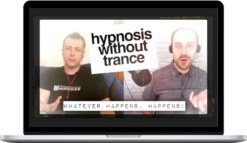Using Hypnosis with Children and Teens
$497.00 $64.00
»Instant Delivery
Description
Using Hypnosis with Children and Teens
USING HYPNOSIS WITH CHILDREN Using Hypnosis with Children and Teens
Imagine making a positive difference in the life of a child using Your natural skills and talents as a Hypnotist! Children can be a challenge to work with, but also the most easily Hypnotized clients You will ever work with. Do You think there just may be a possibility that some of the adult clients You work with have children or grandchildren who could use Your help? I’m going to bet YES! And parents are more likely to spend money helping their children than themselves.
USING HYPNOSIS WITH TEENS Using Hypnosis with Children and Teens
Most Teenagers are fascinated with Hypnosis, but also sometimes skeptical. When You work with Teenagers, You are helping them make positive life enhancing changes. What could be more rewarding? And parents are more likely to spend money on their Teenagers than they are on themselves – especially for sports or study enhancement.
HYPNOSIS AND HYPNOTHERAPY WITH CHILDREN (FOURTH EDITION)
Updated and revised in response to developments in the field, this Fourth Edition of Hypnosis and Hypnotherapy With Children describes the research and clinical historical underpinnings of hypnosis and hypnotherapy with children and adolescents, and presents an up-to-date compendium of the pertinent world literature regarding this topic. The authors focus on the wide variety and scope of applications for hypnotherapy; including an integrated description of both clinical and evidence-based research as it relates to understanding approaches to various clinical situations, case studies of practical aspects, and how-to elements of teaching hypnotherapeutic skills to clients.
THERAPEUTIC HYPNOSIS WITH CHILDREN AND ADOLESCENTS
In this completely revised, updated and expanded volume, the editors have brought together some of the fields most outstanding contributors to examine the wide-ranging applications and promise of the use of hypnosis with children. The book develops core principles of clinical hypnosis with children and adolescents and each contributor delineates how they apply these precepts in a range of psychological and medical settings. The result is a constellation of perspectives and clinical applications that move the reader beyond literature review to practical advice.
In Part 1, the broad framework of hypnosis with children is elucidated: concepts, developmental considerations, approaches to induction, hypnotic ability, hypnosis with families and ethical considerations are reviewed. Additionally, the implications of a developmental perspective in hypnosis are extrapolated to work with adults.
Parts 2 and 3 illuminate key psychological and medical applications of hypnosis. In the psychological realm, trauma, habit disorders, somatoform disorders, depression, anxiety and behavioral disorders are scrutinized. A particularly original chapter explores the use of clinical hypnosis with the family as the patient.
The medical section describes the integration of hypnosis from acute care settings to the operating room; in pain management, chronic diseases, elimination disorders, recurrent pain and palliative care. Throughout the book, clinical vignettes draw the reader into the hypnotic encounter while supportive evidence, strategies and caveats provide insights.
This unique combination of literature review, diverse clinical perspective, and “how-to-do-it” clinical integration makes the second edition an essential book required on the desk of all clinicians who strive to build person-centered, creative, mind-body therapies into their clinical care of children and adolescents. It will be of immeasurable value to both the experienced clinician as well as the beginning practitioner.
More courses from the same author: Hypnosis
Delivery Policy
When will I receive my course?
You will receive a link to download your course immediately or within 1 to 21 days. It depends on the product you buy, so please read the short description of the product carefully before making a purchase.
How is my course delivered?
We share courses through Google Drive, so once your order is complete, you'll receive an invitation to view the course in your email.
To avoid any delay in delivery, please provide a Google mail and enter your email address correctly in the Checkout Page.
In case you submit a wrong email address, please contact us to resend the course to the correct email.
How do I check status of my order?
Please log in to HealingCourse account then go to Order Page. You will find all your orders includes number, date, status and total price.
If the status is Processing: Your course is being uploaded. Please be patient and wait for us to complete your order. If your order has multiple courses and one of them has not been updated with the download link, the status of the order is also Processing.
If the status is Completed: Your course is ready for immediate download. Click "VIEW" to view details and download the course.
Where can I find my course?
Once your order is complete, a link to download the course will automatically be sent to your email.
You can also get the download link by logging into your HealingCourse account then going to Downloads Page.
Related products
Total sold: 12







